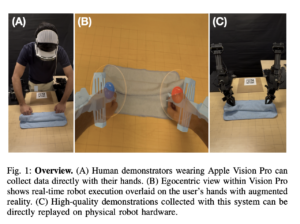How AI is transforming problem-solving

A new study by researchers at King’s Business School and Wazoku has revealed that AI is transforming global problem-solving.
The report found that nearly half (46%) of Wazoku’s 700,000-strong network of problem solvers had utilised generative AI (GenAI) to work on innovative ideas over the past year. This network – known as the Wazoku Crowd – comprises a diverse group of professionals including scientists, pharmacists, engineers, PhD students, CEOs, start-ups, and business leaders.
Perhaps more strikingly, almost a quarter (22%) of respondents reported using GenAI or LLM tools such as ChatGPT and Claude for at least half of their idea submissions, with 8% employing these technologies for every single submission. Of those using GenAI, 47% are leveraging it specifically for idea generation.
The Wazoku Crowd’s collective intelligence is harnessed to solve ‘challenges’ – requests for ideas submitted by enterprises – with an impressive success rate of over 80%.
Simon Hill, CEO of Wazoku, commented on the findings: “There’s an incredible amount of hype with GenAI, but alongside that there is enormous curiosity. Getting immersed in something and being curious is an innovator’s dream, so there is rich potential with GenAI.”
However, Hill also urged caution: “A note of caution, though – it is best used to generate interest, not solutions. Human ingenuity and creativity are still best, although using GenAI can undoubtedly make that process more effective.”
The study revealed that the most common application of GenAI was in research and learning, with 85% of respondents using it for this purpose. Additionally, around one-third of the Wazoku Crowd employed GenAI for report structuring, writing, and data analysis and insight.
The research was conducted in partnership with Oguz A. Acar, Professor of Marketing and Innovation at King’s Business School, King’s College London. Professor Acar viewed the study as a crucial first step towards understanding AI’s potential and limitations in tackling complex innovation challenges.
“Everyone’s trying to figure out what AI can and can’t do, and this survey is a step forward in understanding that,” Professor Acar stated. “It reveals that some crowd members view GenAI as a valuable ally, using it to research, create, and communicate more effectively.”
“While perhaps it’s no surprise that those open to innovation are curious about new tools, the survey also shows mixed opinions. Most people haven’t used GenAI tools yet, highlighting that we’re only beginning to uncover AI’s potential in innovative problem-solving.”
Wazoku collaborates with a range of customers, including Sanofi, A2A, Bill & Melinda Gates Foundation, and numerous global enterprise businesses, government departments, and not-for-profits, to crowdsource ideas and innovation.
Recently, Wazoku launched its own conversational AI to aid innovation. Dubbed Jen AI, this digital innovation assistant has access to Wazoku’s connected innovation management suite—aimed at accelerating decision-making around innovation and enhancing productivity to deliver consistent, scalable results.
“The solutions to the world’s problems are complex, and the support of AI brings vast benefits in terms of efficiency, creativity, and insight generation,” explained Hill.
As the adoption of AI in innovation processes continues to grow, it’s clear that – while these tools offer significant potential – they are best used to augment rather than replace human creativity and problem-solving skills.
(Photo by Ally Griffin)
See also: Ivo Everts, Databricks: Enhancing open-source AI and improving data governance
Want to learn more about AI and big data from industry leaders? Check out AI & Big Data Expo taking place in Amsterdam, California, and London. The comprehensive event is co-located with other leading events including Intelligent Automation Conference, BlockX, Digital Transformation Week, and Cyber Security & Cloud Expo.
Explore other upcoming enterprise technology events and webinars powered by TechForge here.












